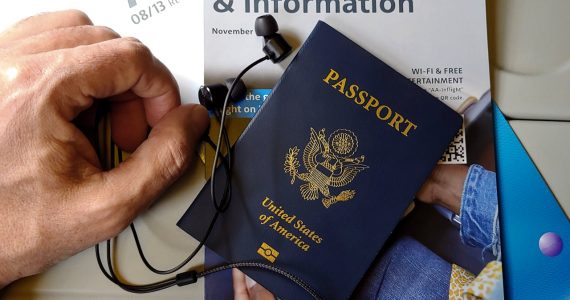Discovering that a cheating partner has disrupted the trust within your relationship can be a challenging and emotional experience. Whether it’s a fleeting one-time betrayal, a long-term affair, or an emotional connection with someone else, the pain that follows is often intense. This shock brings countless questions, as you try to process the situation and consider what comes next.
Breaking the Trust
Few things are as destructive to a relationship as cheating, which shatters trust at its foundation. It isn’t solely the act of infidelity that causes pain but the deceit, secrecy, and rejection that accompany it. This breach in trust can lead to intense feelings of vulnerability, making it difficult to rebuild confidence in the relationship.
When faced with a cheating partner, many find themselves on high alert, worried about further deception. Rebuilding trust, if even possible, will be a slow process, requiring patience, communication, and transparency. But before any recovery begins, you may want to examine the truth behind the betrayal.
Discovering the Truth

Learning about an affair from your partner can feel painful yet may allow for an honest discussion to begin. On the other hand, stumbling upon the truth yourself—whether through messages, other signs, or a friend’s disclosure—often intensifies feelings of betrayal. This way of finding out can add to the confusion and make it even harder to process emotions, often making people question how to move forward.
Can Reconciliation Work, or Is It Time to Walk Away?
Deciding whether to stay in the relationship is deeply personal. For some, infidelity is an undeniable boundary that cannot be crossed. For others, it creates a sense of uncertainty and hesitation about what the future holds. Taking time to process emotions without rushing to a decision is normal, and this time can provide clarity.
If staying together feels possible, consider these questions:
1. Is recovering from this affair achievable?
2. Do you genuinely want to pursue recovery?
Many partners find themselves delaying decisions as they process their thoughts and emotions. Sometimes, external pressures, like children or societal expectations, add further complications to these choices. But the partner’s reaction to the situation can significantly affect this decision.
Responding to the Cheating Partner’s Reaction
In the wake of infidelity, a cheating partner’s response can vary—some may express deep remorse, while others might downplay their actions or, unfortunately, blame their partner. These reactions can influence your own feelings and may complicate the decision-making process.
1. Remorse and Accountability – If the cheating partner owns their actions, showing a desire to make things right, this could be a basis for constructive discussions.
2. Defensive Reactions – Sometimes, a partner might refuse to take responsibility, adding emotional strain to the situation.
A partner’s reaction, whether sincere or defensive, can create an additional layer of stress, affecting your own emotional journey in deciding the relationship’s future.
Should the Cheating Partner Move Out?
This choice is highly personal. Some may find that physical separation helps them gather their thoughts, while others may feel the need to continue sharing the same space to address the situation directly. A trial separation could help clarify feelings, especially if there’s a need for individual time and space. Either way, take the time you need and avoid pressuring yourself for immediate answers.
Handling the Situation with Children Involved
If children are part of the equation, the situation can feel even more complex. Deciding how much information to share, and how to shield children from the details, are common concerns. Younger children, in particular, may not understand the complexities, so maintaining age-appropriate communication can help protect their well-being. Focus on reassurance and maintaining a calm environment, as this can support their emotional stability.
Deciding Whether to Inform Others
When dealing with a cheating partner, deciding whether to tell others can be difficult. Confiding in close friends or family members often provides emotional support, yet too much external input might cloud judgment, especially if you’re undecided about staying in the relationship.
It may also be beneficial to limit how much detail is shared, as oversharing could impact dynamics if you and your partner choose to reconcile. Seeking guidance from a professional, such as a therapist or counselor, can provide objective insight, helping you process your thoughts and feelings without external bias.
Rebuilding a Relationship After Infidelity
Recovering from an affair is challenging, and the decision to stay together is not an easy one. If rebuilding trust is the path forward, the partner who was unfaithful must show true accountability, demonstrating honesty and a willingness to make amends. Trust repair will require consistent transparency, patience, and open communication.

However, even with dedicated efforts, recovery may not be possible. Lingering doubts and a cycle of suspicion may prevent genuine reconciliation. This mental strain can make it hard to move forward healthily. Evaluating the situation honestly and deciding if the relationship still has a foundation for trust can help in making the best choice.
Legal Considerations
For those considering divorce after infidelity, it’s essential to understand that, in some places, such as the UK, cheating doesn’t directly affect the division of assets or child arrangements in divorce proceedings. Instead, these decisions rely on factors like children’s welfare, income, and asset distribution. The introduction of no-fault divorce laws has made it easier to dissolve marriages without needing to assign blame or gather proof of infidelity, helping streamline the process while focusing on the well-being of all involved.
When Divorce Isn’t the Only Answer
While infidelity is a common reason for separation, some relationships can weather the storm. Each partnership is unique, and what feels like a breaking point for one couple may serve as an opportunity for reflection for another. For some, infidelity highlights areas within the relationship that require attention, sometimes leading to reconciliation and growth.
But for others, the damage runs too deep, and divorce becomes the healthiest choice, offering a fresh start. Assessing personal needs and boundaries can help in choosing a path that supports long-term well-being and happiness.
Final Considerations
Regardless of the outcome, prioritizing emotional health and seeking support are essential steps in coping with infidelity. Surrounding yourself with a trusted support system, whether friends, family, or professionals, can provide valuable perspectives and guidance. Remember, there’s no rush to decide the future of your relationship; take time to reflect and consider all aspects thoughtfully.




